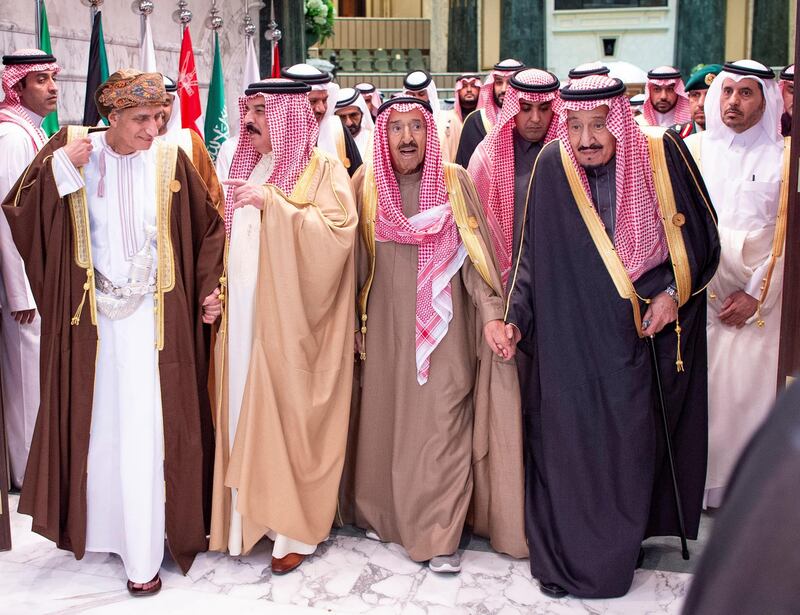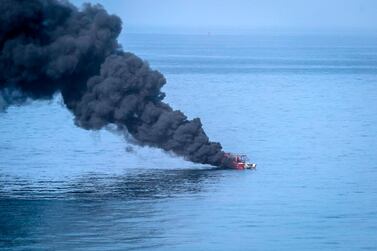The GCC has called on the UN to extend an international arms embargo on Iran, a move pushed strongly by the US.
The secretariat of the GCC, made up of the UAE, Saudi Arabia, Bahrain, Kuwait, Oman and Qatar, said in a letter to the UN Security Council that Iran's continued interference in neighbouring countries made an extension necessary.
Iran “has continued to proliferate weapons across the region as an integral part of its expansionist regional policy and longstanding interference in the internal affairs of Arab states, including GCC member states, in clear violation of the UN Charter,” the GCC said.
"It is inappropriate to lift restrictions on the supply of weapons from and to Iran until Iran gives up its destabilising activities in the region and stops supplying terrorist and sectarian organisations with weapons."
The letter was sent to the UN Security Council by the GCC Secretary General, Nayef Al Hajraf.
The arms embargo on Iran is set to end on October 18 under Tehran's 2015 nuclear deal with world powers, from which Washington withdrew in 2018.
The letter to the UN is a show of unity from the GCC. In 2017, Saudi Arabia, the UAE, Bahrain and Egypt severed political, trade and transport ties with Qatar over its support for extremists and warm relations with Tehran.
The GCC called on the Security Council to “further impose any additional measures necessary to prevent the destabilising proliferation of Iranian weapons, such as a targeted assets freezes and travel bans on individuals involved in the supply, sale or transfer of arms or related materiel to or from Iran”.
The GCC stance follows recent visits by the departing US special representative for Iran, Brian Hook.
Mr Hook told The National in June that it was "very important that the region speaks with one voice to call on the UN Security Council to extend the embargo".
The UN banned Iran from buying major foreign weapons systems in 2010 amid tension over its nuclear programme.
If the US is unsuccessful in extending the embargo, it has threatened to start a return of all UN sanctions on Iran under a process agreed to in the 2015 deal.
The US-drafted resolution needs at least nine votes in favour to force Russia and China to use their powers of veto, which Moscow and Beijing have indicated they would do.
But some diplomats question whether Washington can secure those nine votes.







